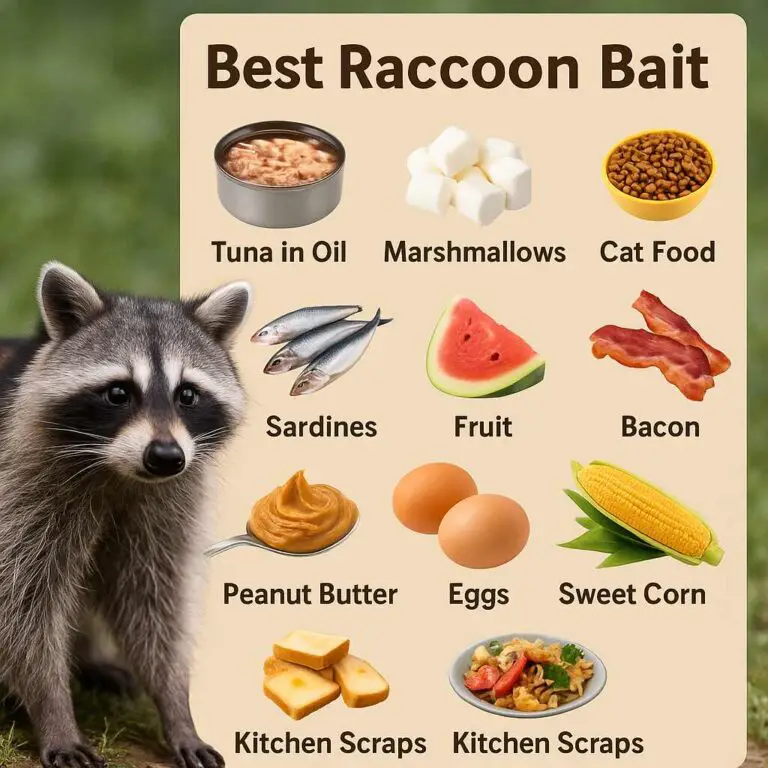Raccoons, those charismatic masked bandits that prowl our urban neighborhoods and wooded areas alike, have long captured our imagination with their clever antics. But beyond their mischievous exterior lies a fascinating world of cognitive abilities and problem-solving prowess.
Let’s dive deep into the world of raccoon intelligence, exploring their remarkable cognitive skills, problem-solving abilities, and the secrets that underlie their adaptive success.
The Curious Case of Raccoon Intelligence
Raccoons (Procyon lotor), also known as “trash pandas,” have earned a reputation for being resourceful and cunning. These medium-sized mammals are native to North America but have also been introduced to other parts of the world. They are known for their distinctive black mask-like facial markings, ringed tails, and dexterous forepaws.
A Brief Overview of Raccoon Behavior
Before diving into the intricacies of raccoon intelligence, it’s essential to understand their behavior and lifestyle. Raccoons are opportunistic omnivores, meaning they eat a wide variety of foods, including fruits, vegetables, insects, small mammals, and even human trash. This dietary versatility is one of the key factors contributing to their success in adapting to various environments.
Raccoons are primarily nocturnal animals, which means they are most active at night. Their sharp senses, including excellent night vision, make them well-suited for this lifestyle. They are solitary animals by nature, except during the breeding season when they form temporary social groups.
The Cognitive Marvel of Raccoon Intelligence
Raccoons’ cognitive abilities have intrigued scientists for years. Their intelligence is not only demonstrated in their foraging skills but also in their problem-solving capabilities and social behaviors.
1. Complex Foraging Strategies
Raccoons have developed sophisticated foraging strategies to obtain food. One of their remarkable abilities is the use of their nimble hands to manipulate objects. Their front paws are incredibly dexterous, almost resembling human hands. This allows them to open containers, turn knobs, and even solve puzzles to access food.
Studies have shown that raccoons are capable of remembering the solutions to complex problems for an extended period. They can also adapt their foraging strategies when presented with new challenges, demonstrating a high degree of flexibility in their cognitive abilities.
2. Tool Use and Innovation
Raccoons are known to exhibit tool-using behaviors, albeit to a limited extent. In captivity and in the wild, they have been observed using sticks and other objects to extract food from hard-to-reach places. While they may not be as adept at tool use as some primates, their ability to innovate and adapt tools for specific tasks is impressive.
3. Spatial Memory and Navigation
Navigating through intricate urban environments and dense forests requires a keen sense of spatial memory. Raccoons exhibit remarkable spatial memory skills, allowing them to remember the locations of food sources, den sites, and other critical landmarks. This ability is crucial for their survival in both natural and urban habitats.
4. Social Intelligence
While raccoons are generally solitary animals, they display social intelligence when necessary. During the breeding season, they form temporary social groups, and communication among group members is vital for successful reproduction. Raccoons use a variety of vocalizations, body language, and scent marking to communicate with conspecifics.
5. Problem-Solving and Learning
One of the most compelling aspects of raccoon intelligence is their problem-solving ability. Research has shown that raccoons can quickly learn to solve novel tasks and puzzles. They demonstrate cognitive flexibility, adjusting their strategies when faced with new challenges. This adaptability is a testament to their intellectual prowess.
The Brain Behind the Mask: Raccoon Neurology
Understanding raccoon intelligence requires a peek into their brain structure and how it relates to their behavior. Raccoons possess relatively large brains for their body size, and their brain anatomy reflects their cognitive capabilities.
1. Enlarged Neocortex
The neocortex, the outer layer of the brain responsible for higher cognitive functions, is relatively large in raccoons compared to many other mammals. This enlargement likely plays a role in their advanced problem-solving abilities, decision-making, and sensory perception.
2. Olfactory Center
Raccoons have a highly developed olfactory center, allowing them to detect and distinguish a wide range of scents. This keen sense of smell is essential for locating food, identifying conspecifics, and navigating their environment.
3. Tactile Sensitivity
The raccoon’s front paws are exceptionally sensitive, equipped with a high density of mechanoreceptors. This sensitivity facilitates their intricate manipulation of objects and tools. Their hands are so sensitive that they can even detect prey hiding beneath water without seeing it.
4. Cognitive Flexibility
The raccoon’s brain is wired for adaptability. Their ability to switch between different foraging strategies, learn from their experiences, and tackle novel challenges is a testament to their cognitive flexibility. This adaptability allows them to thrive in a variety of environments, from forests to urban areas.
The Urban Racoon: A Cognitive Marvel in Our Midst
Raccoons’ adaptability and intelligence are perhaps most apparent in urban environments. As cities continue to expand, raccoons have found a niche within them, often thriving alongside humans. This unique coexistence highlights their ability to adapt and capitalize on new opportunities.
1. Trash Can Raiders
Urban raccoons have earned the nickname “trash pandas” for their affinity for human-generated waste. Their ability to open latched trash cans and containers is a testament to their problem-solving skills. This behavior also underscores their ability to adapt their foraging strategies to urban landscapes.
2. Human Interaction
Raccoons in urban areas must navigate a complex social landscape that includes interactions with humans and domestic pets. Their ability to assess and respond to human behavior reflects their social intelligence. In some cases, raccoons have even learned to interact with humans for food, although this can lead to conflicts and should be discouraged.
3. Adapting to Urban Challenges
Raccoons face unique challenges in urban environments, such as traffic hazards, pollution, and increased competition for food resources. Their ability to adapt to these challenges showcases their cognitive flexibility and resilience.
The Evolutionary Roots of Raccoon Intelligence
To understand the origins of raccoon intelligence, it’s crucial to explore their evolutionary history and the selective pressures that shaped their cognitive abilities.
1. Survival in Varied Habitats
Raccoons are native to North America, where they have adapted to a wide range of habitats, from forests to wetlands and urban areas. This adaptability has been key to their survival and evolution. Those individuals with more advanced cognitive abilities likely had an advantage in finding food and avoiding predators, leading to the selection of traits associated with higher intelligence.
2. Co-evolution with Humans
As humans expanded across North America and built urban environments, raccoons capitalized on new food sources and habitats. This co-evolutionary relationship with humans may have further driven the development of raccoon intelligence, as those able to exploit human resources were more likely to survive and reproduce.
3. Predator-Prey Dynamics
Raccoons have a diverse diet that includes both plant and animal matter. As omnivores, they must be skilled hunters and foragers. Their cognitive abilities, including problem-solving and memory, have evolved to help them locate and capture prey while also avoiding becoming prey themselves.
The Future of Raccoon Intelligence Research
Raccoon intelligence continues to be a subject of fascination for researchers. As technology advances, scientists are finding new ways to study these clever creatures and gain insights into their cognitive abilities.
1. Cognitive Testing
Researchers are developing more sophisticated cognitive tests to assess raccoon intelligence in controlled settings. These tests can reveal how raccoons learn, adapt, and solve problems, providing valuable data on their cognitive processes.
2. Neurobiological Studies
Advancements in neurobiological research allow scientists to examine the neural mechanisms behind raccoon intelligence. Studying their brain activity and comparing it to other species can shed light on the evolution of cognitive abilities.
3. Conservation Implications
Understanding raccoon intelligence has broader implications for wildlife conservation and management. As human populations expand and urbanization continues, raccoons will face new challenges. Insights into their cognitive abilities can inform strategies for coexistence and wildlife management.
Conclusion
Raccoons may be known for their cheeky demeanor and masked faces, but beneath their playful exterior lies a world of remarkable cognitive abilities. Their adaptability, problem-solving skills, and capacity for learning have allowed them to thrive in a variety of environments, including urban areas.
As our understanding of raccoon intelligence continues to grow, we gain valuable insights into the complexities of animal cognition and the evolutionary forces that have shaped these clever creatures. While raccoons may remain enigmatic, their intelligence is undeniable, and their presence in our lives continues to be a source of fascination and admiration.








